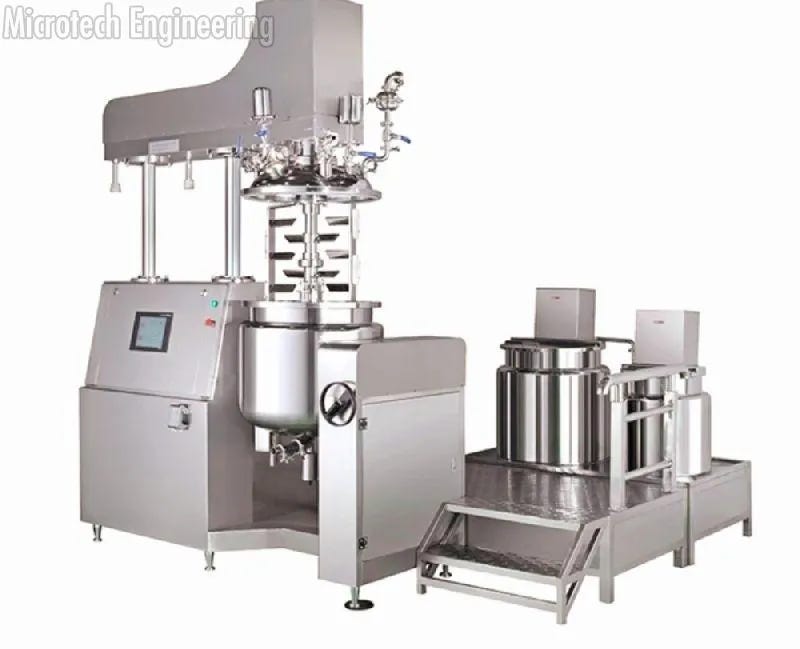In the competitive landscape of food manufacturing, consistency, speed, and hygiene are key to delivering products that meet market demands. Among the many technological advancements driving this industry forward, the industrial mayonnaise mixer machine has emerged as an indispensable tool for large-scale mayonnaise production. Designed for efficiency and precision, these machines offer a robust solution for blending oil, egg yolks, vinegar, and other ingredients into a uniform emulsion. Unlike traditional methods that are labor-intensive and error-prone, modern mixers ensure consistent texture, flavor, and stability. As consumer demand for packaged condiments grows worldwide, manufacturers are increasingly turning to advanced mixing technologies to stay ahead of the curve.
The main advantage of using an industrial mayonnaise mixer machine lies in its ability to produce uniform, high-quality batches with minimal variation. Whether in a large commercial kitchen or a fully automated food processing plant, maintaining consistency across thousands of units is critical. That’s where equipment like commercial mayonnaise mixing equipment plays a vital role. These machines are built with advanced blending systems that evenly disperse ingredients at controlled speeds, ensuring a smooth and creamy texture without over-processing or separation. Moreover, when paired with a vacuum emulsifying mixer for mayonnaise, manufacturers can further enhance the quality by removing entrapped air, which improves the appearance, shelf life, and stability of the final product. This vacuum technology also reduces oxidation, preserving flavor and nutritional value—making it ideal for sensitive food products like mayonnaise.
One of the most significant innovations in the food equipment industry is the introduction of fully automated systems. An automatic mayonnaise processing machine eliminates the need for constant human supervision and reduces labor costs significantly. These machines are often equipped with digital controls, programmable mixing settings, and automatic cleaning cycles, which streamline operations and reduce the chances of contamination. Such automation improves batch reliability and helps scale production with ease. Additionally, when these machines are integrated into a full mayonnaise production line equipment system, the result is a seamless and highly efficient workflow—from raw ingredient feeding to emulsification, pasteurization, cooling, and final packaging. This closed-loop system reduces product waste and energy consumption, contributing to both economic and environmental sustainability.
Beyond operational efficiency, adopting an industrial mayonnaise mixer machine brings long-term strategic advantages. As food safety regulations become increasingly stringent, these machines are manufactured with compliance in mind. Most modern mixers are built using food-grade stainless steel and designed with easy-to-clean surfaces and CIP (clean-in-place) systems to meet hygiene standards such as FDA and GMP. This ensures not only the safety of the food produced but also the health and well-being of end consumers. For growing food brands, the ability to deliver safe, high-quality mayonnaise on a mass scale can open doors to new markets, including export opportunities. Moreover, the flexibility of these mixers allows manufacturers to diversify product lines by adjusting formulas, batch sizes, and mixing cycles — making it easier to produce low-fat, eggless, or flavored varieties of mayonnaise with minimal equipment changeover.
In conclusion, the industrial mayonnaise mixer machine is far more than just a mixing tool—it is the heart of modern mayonnaise production. By combining precision engineering with automation and hygiene-focused design, it meets the needs of manufacturers looking for scalable and sustainable solutions. Whether it’s through improved texture using a vacuum emulsifying mixer, efficiency gains from an automatic mayonnaise processing machine, or seamless integration within a full mayonnaise production line equipment setup, this technology enables businesses to produce premium-quality mayonnaise at scale. As consumer demand grows and industry standards rise, the role of the industrial mixer will only become more critical. Investing in high-performance commercial mayonnaise mixing equipment is not just a step toward modernization—it’s a strategic move toward long-term success in the food processing industry.
Tags:
industrial mayonnaise mixer machine
commercial mayonnaise mixing equipment
automatic mayonnaise processing machine

Comments on “The Role of the Industrial Mayonnaise Mixer Machine in Modern Food Manufacturing”